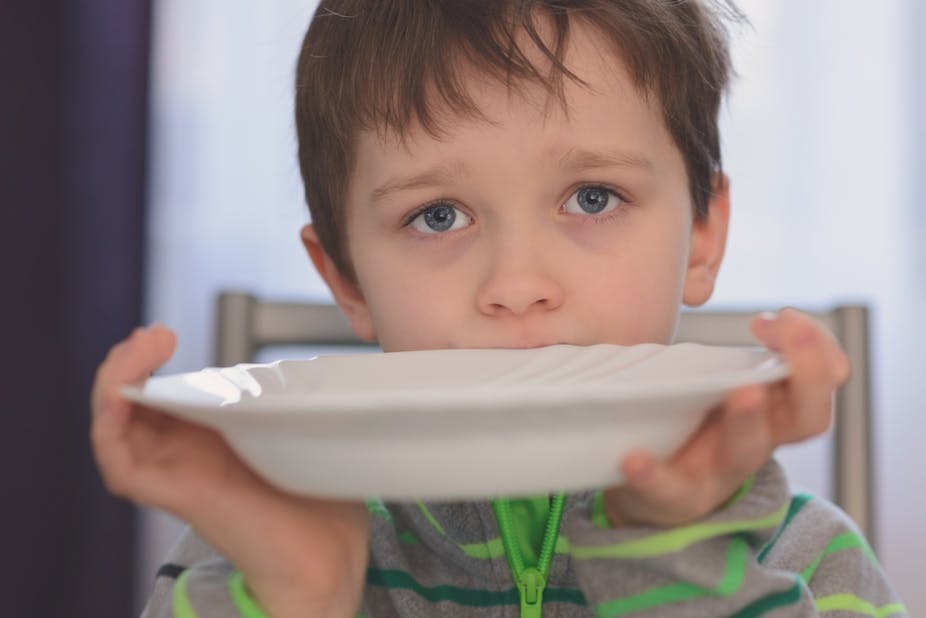Back in the year 2000, as a newly qualified sociologist fresh out of my PhD, I decided to interview my grandparents. Now aged 87 and 84, they had lived through most of the 20th century. I asked them to tell me about the most dramatic changes that they had either witnessed or experienced through their lifetime. Without a moment of hesitation, and without pausing to confer with one another over what might be included, they both answered me with one word: “food!”
As working-class children growing up in the north of England in decades of economic depression, and having lived through the “hungry thirties”, they remembered what it was like to experience food poverty. The experience of being hungry as children and as young adults had left an indelible mark on their social memories and life attitudes. They went on to tell me that they both held that the most significant invention of the 20th century was the modern supermarket. They found it remarkable to be living though their old age at a time when such a great variety of food was readily available and affordable to them.
I was immediately reminded of a phrase that I had come across in my work, but up until that point had not fully attended to its significance, namely, that “bodies remember”. There is something about the agony of the bodily experience of deprivation that, when suffered, remains to haunt a person for the rest of their lives.
In recent months I’ve regularly recalled this incident while working with The Food Foundation, an independent think tank that tackles the growing challenges facing the UK’s food system, on the analysis of submissions to the final report of the Children’s Future Food Inquiry. This features data gathered from interviews and group discussions with nearly 400 British children and young people aged between ten and 20-years-old who are currently experiencing food poverty.
Alongside their testimonies is evidence submitted from children’s centres, food banks, schools, health care professionals, academics, faith organisations, housing associations, community advice centres and holiday kitchens. On reading through all this, it has been made sickeningly clear to me that, in 2019, parts of Britain are yet again immersed in experiences of social suffering that are akin to the “devil’s decade” of the 1930s.
Going hungry
One in three children – or 4.1m – are living in poverty in the UK. The charity UNICEF estimates that 2.5m British children, or 19%, now live in food insecure households. This means that there are times when their family doesn’t have enough money to acquire enough food, or they cannot buy the full variety of foods needed for a healthy diet. In addition, 10% of these children are also classified as living in severe food insecurity (the European average is 4%) and as a result are set to experience adverse health outcomes.
The rates of hospital admissions due to rickets (a disease largely caused by severe malnutrition in the early stages of childhood) are at their highest for 50 years There is also increasing evidence of childhood stunting – impaired growth and development resulting from poor nutrition. A recent study found that children living in some of the most economically deprived regions of England were on average more than a centimetre shorter in height by the age of ten years than those living in the most economically advantaged areas.
In schools where the majority of pupils are entitled to receive free school meals, teachers are reporting that they are regularly observing hungry children filling their pockets with any leftovers they can find so that they have something to eat for their evening meal. Outside term times, “holiday hunger” is now widespread and many are left relying on “free meals” offered by clubs and schemes run by local charities as their main source of food.
Angry and bewildered
The children profiled in the final report explain in unvarnished, matter-of-fact terms what it’s like to experience life at school through the exhaustion of hunger pains and with the social stigma of being labelled as a claimant of “free school meals”.
They bear testimony to the shock of being made to experience conditions that leave them mentally damaged, physically debilitated and with no possibility of escape. It’s particularly harrowing to learn of the dire state of contemporary Britain through the angry and bewildered voices of its children. However, perhaps more distressing still are the areas of the report that document some of the experiences of those left voiceless.
The inquiry also gathered evidence from some of those working among the thousands of extremely vulnerable refugee children who are entirely excluded from accessing free school meals because they are undocumented or have no access to public funds. These children are entirely reliant on charity. One child was left so hungry that he: “Was regularly eating plasterboard, foam-like materials from his pillow, stuffing from his coat and fibre from his socks and jumpers”.
The report asserts that “what we feed our children is a defining factor of our nation’s values”. On the evidence it presents, these values have to change, for those we are living by now have surely failed.

